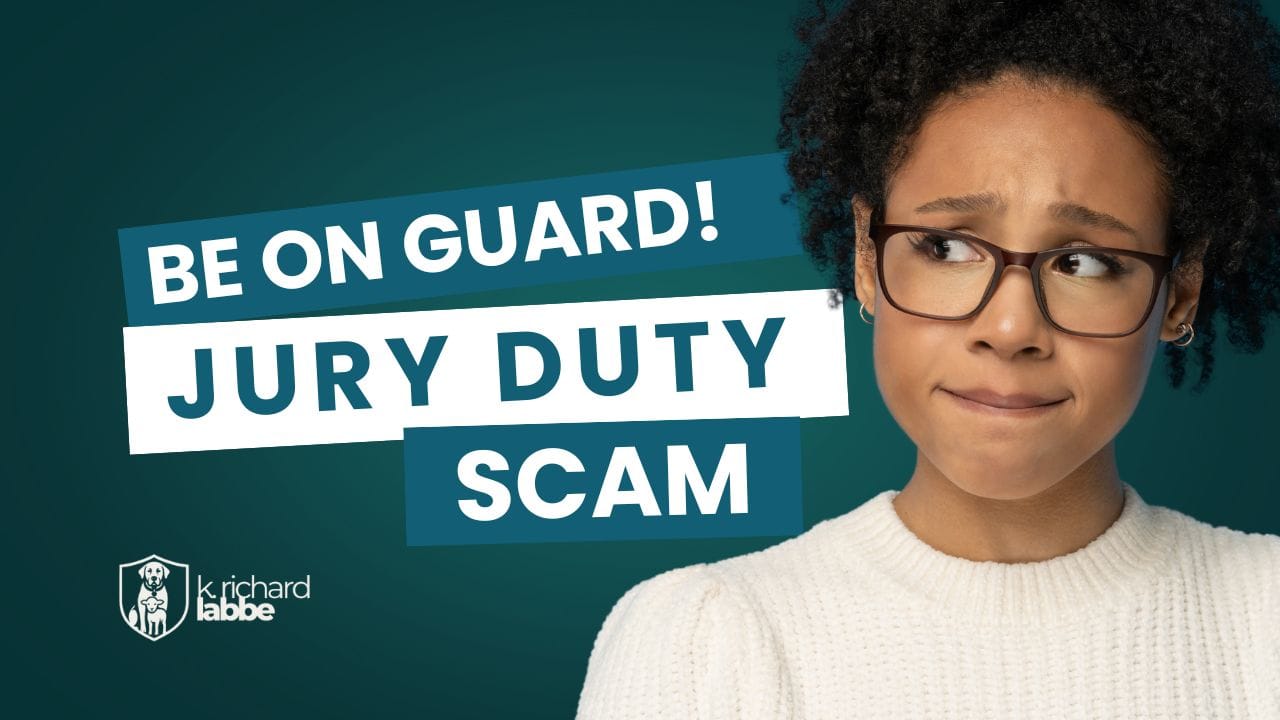Jury Duty Scams: What You Need to Know Before You Panic
This kind of con—known as a jury duty scam—has been making the rounds across the country. It’s one of the more convincing phone scams out there, because it plays on something most of us care about deeply: doing the right thing.

Earlier this week, a woman from the Pittsburgh area received a phone call that stopped her in her tracks. The caller claimed to be a sheriff’s deputy. His tone was urgent. According to him, she had missed jury duty—and now she was facing arrest unless she paid a hefty fine immediately.
He had details that made it sound official. Her name. Her address. Courtroom information. He even warned her not to show up at the courthouse in person. That’s when she got suspicious—and thankfully, she reached out to the real authorities.
Turns out, it was a scam. And she’s not alone.
This kind of con—known as a jury duty scam—has been making the rounds across the country. It’s one of the more convincing phone scams out there, because it plays on something most of us care about deeply: doing the right thing.
▶️ Full story via CBS Pittsburgh
Let’s walk through how it works, why it’s so dangerous, and what you can do to protect yourself and the people you love.
How the Jury Duty Scam Typically Works
The setup usually starts with a phone call from someone claiming to be a law enforcement officer or court official. They may say they’re from the sheriff’s department, the district court, or even the federal marshals. Their tone is serious, and their story is urgent.
They’ll tell you that you’ve missed jury duty and that a warrant has been issued for your arrest. But—lucky you—there’s a way to avoid jail. If you pay a fine right now, the whole thing will quietly go away.
Of course, that fine has to be paid in a very specific way:
Not by check. Not by mailing it in.
But through gift cards, prepaid debit cards, a mobile payment app like Zelle or Venmo, or even cryptocurrency.
Sometimes they’ll tell you the payment is “refundable” after you prove your innocence. Other times they’ll say you can come to court later to get a receipt. It’s all part of the deception.
And worst of all, they’ll warn you not to tell anyone—not even your spouse or a lawyer. "If you talk to someone," they say, "you’ll just get yourself in more trouble."
Why This Scam Works So Well
This isn’t about people being gullible. It’s about people being responsible.
Most of us want to be good citizens. We’d never knowingly skip jury duty, and the thought of being in legal trouble—even if we suspect it’s not true—can be enough to spark fear and confusion. Scammers count on that moment of panic to short-circuit your usual good sense.
And if the caller has done a little homework—maybe looked you up online, quoted your address, or name-dropped a nearby courthouse—it can feel frighteningly real.
Four Warning Signs to Watch Out For
Fortunately, there are some clear red flags. Here’s what no real court or law enforcement agency will ever do:
- They will not call you to demand payment over the phone.
Courts send written notices. If there’s a problem, it will come by mail—not through a surprise phone call. - They won’t threaten you with immediate arrest.
Warrants don’t work that way, and law enforcement doesn’t call to negotiate them. - They won’t ask you to pay using gift cards, mobile apps, or cryptocurrency.
This is a major red flag in almost every scam. No legitimate agency accepts payment through these methods. - They won’t tell you to keep quiet.
Scammers isolate their victims by cutting them off from trusted voices. Real officials welcome questions and verification.
What to Do If You Get a Call Like This
If the phone rings and someone claims you’re in trouble over jury duty, stay calm. You don’t need to solve it in the next five minutes. Here’s what to do:
- Hang up immediately. You are not being rude. You are being wise.
- Look up your local courthouse number yourself—don’t trust the number the caller gives you—and call to verify whether there’s really a problem.
- Don’t give out personal information. That includes your address, Social Security number, date of birth, or bank account info. The more they get, the more damage they can do.
- Tell someone you trust. Don’t let embarrassment keep you from reaching out. Talking with a friend, spouse, or pastor can help you step back and see the situation more clearly.
- Report the scam. You can file a report with the Federal Trade Commission at reportfraud.ftc.gov, or with your state attorney general’s office.
Take These Simple Steps to Protect Yourself Today
If you’re looking to be more scam-aware and scam-smart, here are a few things you can do right now:
- Start a conversation. Talk with your parents, adult children, or neighbors—especially those who may be more vulnerable to this kind of intimidation.
- Understand your local process. Search online for “jury duty + your county” to see how official notices are sent and what to expect.
- Save important court and sheriff phone numbers in your phone so you can easily verify suspicious calls later.
- Bookmark the FTC’s scam reporting site. It’s always better to report than to wonder: reportfraud.ftc.gov
A Word of Encouragement
If you’ve ever been caught off guard by a scam like this—or even started to fall for one—you are not alone. These cons are carefully crafted. They’re designed to create confusion, urgency, and isolation. But there’s no shame in being targeted.
What matters now is what you do next.
You can choose to be alert, prepared, and calm under pressure. And you can help others do the same. By learning what to watch for, sharing what you’ve learned, and standing firm when fear comes knocking, you’re becoming someone others can trust.
That’s the kind of wisdom the world needs more of.
Remember: prepared, not paranoid.
Stay safe. Be ready. Online and off.
Every effort has been made to ensure the accuracy and reliability of the information presented in this material. However, Labbe Media, LLC does not assume liability for any errors, omissions, or discrepancies. The content is provided for informational and educational purposes only and should not be considered professional advice. Viewers are encouraged to verify any information before making decisions or taking actions based on it.
